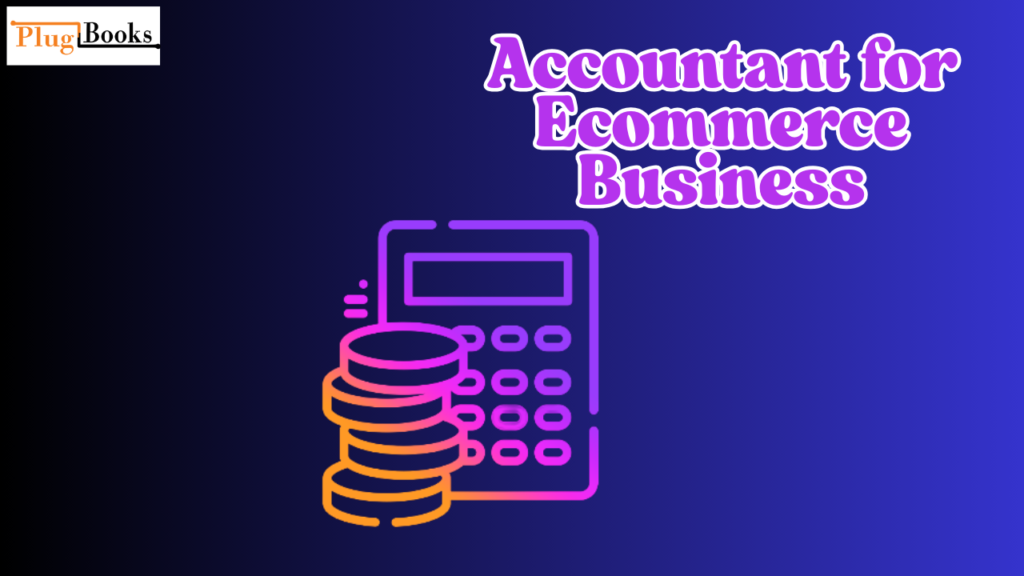Although running an ecommerce business has its many difficulties, it can also be rather fulfilling. Managing the money in an online store is among its most difficult features. That is where an accountant for ecommerce business comes in. Having a qualified accountant on your team will enable you to negotiate the complexities of e-commerce finances, thereby ensuring that your company stays profitable, compliant, and efficient.
We’ll discuss in this blog post the reasons e-commerce companies need specific accounting help, the kinds of accounting services for ecommerce businesses, and how accounting software might help to simplify your financial operations.
Key Points:
- Specialized Accounting: E-commerce companies need customized accounting for taxes, inventories, and multi-channel sales including specialized accounting.
- Inventory Management: An accountant assists in inventory control and COGS calculations of cost of goods sold.
- Sales Tax Compliance: Correct handling of sales taxes will help one remain compliant with either multi-state or worldwide rules.
- Accounting Software: Xero, QuickBooks, and Plugbooks among other tools automatically handle chores and data consolidation in accounting.
- Growth Support: An accountant supports your company’s scaling, cost control, and financial forecasting.

Why You Need an Accountant for Ecommerce Business
Financial difficulties particular to e-commerce companies that conventional brick-and-mortar firms might not run upon are There’s a lot to monitor from inventory management, sales taxes, shipping charges, and multi-channel sales.
Hiring an accountant for ecommerce business is crucial since a typical accountant could not be qualified to manage these complications.
An accountant with an eye toward e-commerce knows the subtleties of online sales, marketplace fees, and changing income sources. They can support you in:
- Accurate bookkeeping of daily expenses and sales in books.
- Inventory management Control of inventory guarantees that neither overstocking nor understocking results.
- Tax compliance includes managing sales tax across several states or countries.
- Profitability analysis helps you to decide on cost control and pricing based on facts.
An accountant for ecommerce business becomes a vital friend who not only handles money but also guarantees that your company is set up for long-term success.

Accounting Services for Ecommerce Business
The financial requirements of an e-commerce company transcend the conventional accounting tools provided to ordinary companies. These are some specific accounting services for ecommerce businesses:
1. Inventory Accounting
Although inventory is among the most valuable assets in e-commerce, financial management in this area is challenging. For e-commerce companies, a qualified accountant will assist you with inventory tracking, COGS computation, and proper inventory accounting assurance.
They may also assist with the inventory turnover ratio, thereby guaranteeing that you neither overstock nor experience cash flow problems.
2. Sales Tax Management
Many times operating in several states or even countries, e-commerce companies can complicate sales tax regulations. An accountant for an e-commerce company will guide you around the convoluted web of sales tax rules so that you follow all relevant laws.
An accountant can make sure you’re collecting, remitting, and correctly paying your sales taxes whether you sell on Amazon, eBay, your own website, or another.
3. Financial Reporting & Analysis
Development of your e-commerce company depends on knowing its financial situation. Regular reports covering sales, expenses, earnings, and other key financial data from an e-commerce accountant These studies provide information that can guide your data-driven decisions about your company, including modifying your advertising budget or pricing plan.
4. Profit and Loss Management
Maintaining profitability in e-commerce can be challenging given elements such changing demand, variable delivery costs, and payment processing fees. Regular analysis of your profit and loss statement by a skilled accountant will allow you to make sure your company stays profitable and point out any possible areas of cost control.

Plugbooks Accounting Software for Ecommerce Business
Apart from appointing a qualified accountant, using accounting software for ecommerce businesses will help your financial operations run much more smoothly. Many accounting chores can be automated with accounting programs such as Xero, QuickBooks, and Plugbooks.io, therefore saving you precious time and lowering human error.
Popular among e-commerce companies, especially those operating on sites like eBay and Amazon, Plugbooks connects automatically with Xero and QuickBooks so you may directly sync your sales, inventory, and expenses from eBay, Amazon, and other marketplaces into your accounting tool.
For online companies, some main advantages of employing accounting software for ecommerce businesses include in:
- Automated invoicing: Create instantaneously accurate and timely invoices automatically.
- Real-time tracking: It helps you to have a current understanding of your financial data, including profitability and cash flow.
- Inventory management:Track stock levels and automatically modify inventory as sales are made.
- Multi-channel support: Accounting software may combine all of your transactions into one location whether you sell on several channels.
Combining the efficiency of accounting software with the experience of an accountant for ecommerce business can help you to simplify your financial procedures and concentrate on expansion of your company.
How an Accountant for Ecommerce Business Can Help with Expansion
Your accounting demands develop together with the expansion of your online store. For an accountant for ecommerce business, a competent accountant may help with scalability, so managing complicated financial systems and high transaction volume. The following describes how an accountant might support expansion:
Forecasting: Whether it’s launching new products or entering new markets, an accountant can help you budget for future growth.
Cost Optimization: Through better supplier negotiations, overhead reduction, or tax strategy improvement, they can assist you maximize running expenses.
Capital Allocation: Your company would have to find money as it expands. An accountant can assist in your presentation of your financials to lenders or possible investors.

FAQs About Accountant for Ecommerce Business
1. Do small ecommerce stores really need an accountant?
Yes! Even small sellers benefit from accurate bookkeeping, tax help, and profit tracking across platforms like Amazon or eBay.
2. Can an accountant handle multiple sales channels?
Definitely. Ecommerce accountants can manage Amazon, Shopify, and eBay data together — especially when using tools like PlugBooks for syncing.
3. How is ecommerce accounting different?
It involves inventory tracking, online fees, and multi-state taxes — areas a regular accountant might miss.
4. Can software replace an accountant?
No. Software like PlugBooks automates data, but a real accountant interprets it and gives financial guidance.
5. How often should I check reports?
Monthly is best. It keeps your finances on track and helps fix issues early.6. How do I find the right ecommerce accountant?
Pick one familiar with ecommerce tools, sales tax rules, and platforms like QuickBooks or PlugBooks.
Conclusion:
An accountant for ecommerce business is more than just a number cruncher. From inventory control to tax compliance and financial forecasts, they are a strategic partner guiding you throughout the complexity of e-commerce finances. Combined with appropriate accounting software for ecommerce business, you may simplify procedures, lower mistakes, and make wise judgments guiding your company ahead.
Tools like Plugbooks link with Xero and QuickBooks to simplify your financial administration if you sell on sites like eBay or Amazon, therefore guaranteeing that your books are always accurate and current.
Choosing the correct accountant and accounting tools now will prevent expensive errors and open the path for long-term company success.




2 thoughts on “Accountant for Ecommerce Business: Essential for Success”